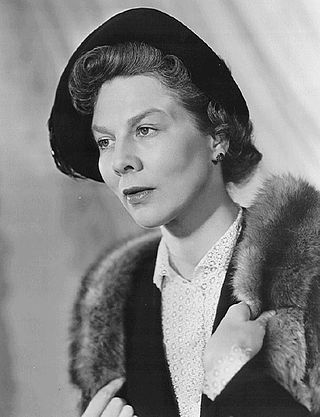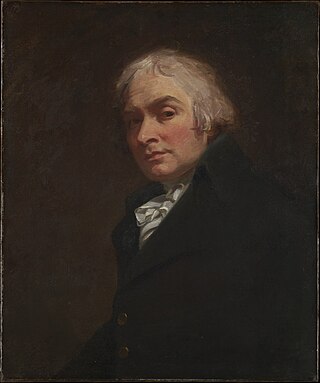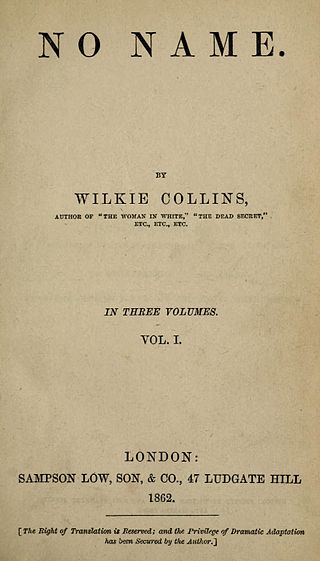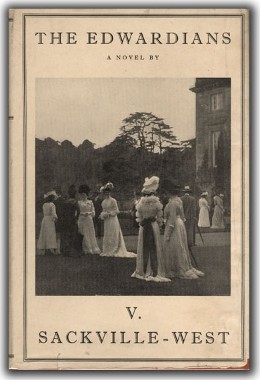Plot introduction
All Passion Spent is written in three parts, primarily from the view of an intimate observer. The first part introduces Lady Slane at the time of her husband's death. She has been the dutiful wife of a "great man" in public life, Viceroy of India and a member of the House of Lords. Her children plan to share her care between them much as they divide up the family property but unexpectedly Lady Slane makes her own decision, proposing to leave fashionable Kensington for a cottage in suburban Hampstead that caught her eye decades earlier, where she will live alone except for her maidservant and please herself — for example allowing her descendants to visit only by appointment. Part 1 concludes with Lady Slane's developing friendships with her aged landlord Mr Bucktrout and his equally aged handyman Mr Gosheron.
Part 2, shorter than the others, is composed of Lady Slane's thoughts as she muses in the summer sun. She relives youthful events, reviews her life and considers life's influences and controls, happiness and relationships.
Summer is over. Part 3 takes place after Lady Slane has settled into her cottage, her contemplative life and approaching end. To her initial annoyance, her past life still connects her to people and events. Mr FitzGeorge, a forgotten acquaintance from India who has ever since been in love with her, introduces himself and they form a quiet but playful and understanding friendship.
Mr FitzGeorge bequeaths his fortune and outstanding art collection to Lady Slane, causing great consternation amongst her children. Lady Slane, avoiding the responsibility of vast wealth, gives FitzGeorge's collection and fortune to the state, much to her children's disgust and her maid's amusement. Lady Slane discovers that relinquishing the fortune has permitted Deborah, her great-granddaughter, to break off her engagement and pursue music, Deborah taking the path that Lady Slane could not.
Characters
Lady Slane (Lady Holland, Deborah Lee). The central character, an 88-year-old woman who, towards the end of her life, is emancipated by her husband's death. Sharing much with Sackville-West, Lady Slane explicitly states that she is not a feminist and considers such issues to be questions of human rights, while acknowledging the more difficult position of women.
Mr FitzGeorge. An acquaintance from Lady Slane's distant past as Vicereine of India, millionaire by inheritance, lover of beauty and fine art. An eccentric who lives as a pauper.
Genoux. Lady Slane's 86-year-old French maid and companion, who has served Lady Slane her entire adult life.
Mr Bucktrout. The elderly and eccentric owner and agent of Lady Slane's cottage, who forms an understanding and regular friendship with Lady Slane.
Mr Gosheron. A builder, of advanced years, introduced by Mr Bucktrout to renovate Lady Slane's cottage.
Kay. A "chubby old gentleman" who is Lady Slane's youngest son. Kay lives alone with his collection of astrolabes and instruments; his only friend is Mr FitzGeorge.
Edith. Lady Slane's youngest daughter (60), undisciplined and easily flustered, to her siblings' amusement and distaste.
Herbert. Lady Slane's eldest boy (68), married to Mabel; member of parliament.
Carrie. Lady Slane's daughter, married to Roland.
Charles. Lady Slane's son, a retired general.
William. Lady Slane's parsimonious son (64), married to the equally miserly Lavinia.
Deborah. Lady Slane's great granddaughter.
Richard. Herbert's eldest son.

Dame Wendy Margaret Hiller, was an English film and stage actress who enjoyed a varied acting career that spanned nearly 60 years. Writer Joel Hirschorn, in his 1984 compilation Rating the Movie Stars, described her as "a no-nonsense actress who literally took command of the screen whenever she appeared on film". Despite many notable film performances, Hiller chose to remain primarily a stage actress.

Victoria Mary, Lady Nicolson, CH, usually known as Vita Sackville-West, was an English author and garden designer.

Sissinghurst Castle Garden, at Sissinghurst in the Weald of Kent in England, was created by Vita Sackville-West, poet and writer, and her husband Harold Nicolson, author and diplomat. It is among the most famous gardens in England and is designated Grade I on Historic England's register of historic parks and gardens. It was bought by Sackville-West in 1930, and over the next thirty years, working with, and later succeeded by, a series of notable head gardeners, she and Nicolson transformed a farmstead of "squalor and slovenly disorder" into one of the world's most influential gardens. Following Sackville-West's death in 1962, the estate was donated to the National Trust. It was ranked 42nd on the list of the Trust's most-visited sites in the 2021–2022 season, with over 150,000 visitors.

The Vicar of Wakefield, subtitled A Tale, Supposed to be written by Himself, is a 1766 novel by Anglo-Irish writer Oliver Goldsmith (1728–1774). It was written from 1761 to 1762 and published in 1766. It was one of the most popular and widely read 18th-century novels among the British citizenry.

George Romney was an English portrait painter. He was the most fashionable artist of his day, painting many leading society figures – including his artistic muse, Emma Hamilton, mistress of Lord Nelson.

Violet Trefusis was an English socialite and author. She is chiefly remembered for her lengthy affair with the writer Vita Sackville-West that both women continued after their respective marriages. It was featured in novels by both parties; in Virginia Woolf's novel Orlando: A Biography; and in many letters and memoirs of the period roughly from 1912 to 1922. She may have been the inspiration for aspects of the character Lady Montdore in Nancy Mitford's Love in a Cold Climate and of Muriel in Harold Acton's The Soul's Gymnasium (1982).

Lady Margaret Sackville was an English poet and children's author.

John Frederick Sackville, 3rd Duke of Dorset, KG was the only son of Lord John Philip Sackville, second son of Lionel Sackville, 1st Duke of Dorset. His mother was the former Lady Frances Leveson-Gower. He succeeded to the dukedom in 1769 on the death of his uncle, Charles Sackville, 2nd Duke of Dorset. He was the British Ambassador to France from 1784 and returned to England in August 1789 following the escalation of the French Revolution.

Mary Delany later Mary Pendarves was an English artist, letter-writer, and bluestocking, known for her "paper-mosaicks" and botanic drawing, needlework and her lively correspondence.
Evelyn Graham Irons was a Scottish journalist, the first female war correspondent to be decorated with the French Croix de Guerre.

No Name is a novel by Wilkie Collins, first published in 1862. Illegitimacy is a major theme of the novel. It was originally serialised in Charles Dickens' magazine All the Year Round before book publication. It is the second of his four 'great novels' after The Woman in White (1860), and before Armadale (1866) and The Moonstone (1868).

Elizabeth Bridget Armistead or Armitstead was a courtesan and, later, the wife of statesman and politician Charles James Fox. Her relationship with and marriage to Fox was one of the most famous and controversial of their age.

Belinda is an 1801 novel by the Anglo-Irish writer Maria Edgeworth. It was first published in three volumes by Joseph Johnson of London. The novel was Edgeworth's second published, and was considered controversial in its day for its depiction of an interracial marriage. It was reprinted by Pandora Press in 1986.

The Great Love is a 1918 American silent war drama film directed and written by D. W. Griffith who, along with scenario writer Stanner E.V. Taylor, is credited as "Captain Victor Marier". The film stars George Fawcett and Lillian Gish. Set during World War I, exterior scenes were shot on location in England. The Great Love is now considered to be a lost film.

Scenes of Clerical Life is George Eliot's first published work of fiction, is an 1858 collection of three short stories, published in book form; it was the first of her works to be released under her famous pseudonym. The stories were first published in Blackwood's Magazine over the course of the year 1857, initially anonymously, before being released as a two-volume set by Blackwood and Sons in January 1858. The three stories are set during the last twenty years of the eighteenth century and the first half of the nineteenth century over a fifty-year period. The stories take place in and around the fictional town of Milby in the English Midlands. Each of the Scenes concerns a different Anglican clergyman, but is not necessarily centred upon him. Eliot examines, among other things, the effects of religious reform and the tension between the Established and the Dissenting Churches on the clergymen and their congregations, and draws attention to various social issues, such as poverty, alcoholism and domestic violence.

The Edwardians (1930) is one of Vita Sackville-West's later novels and a clear critique of the Edwardian aristocratic society as well as a reflection of her own childhood experiences. It belongs to the genre of the Bildungsroman and describes the development of the main character Sebastian within his social world, in this case the aristocracy of the early 20th century.
“I ... try to remember the smell of the bus that used to meet one at the station in 1908. The rumble of its rubberless tyres. The impression of waste and extravagance which assailed one the moment one entered the doors of the house. The crowds of servants; people’s names in little slits on their bedroom doors; sleepy maids waiting about after dinner in the passages. I find that these things are a great deal more vivid to me than many things which have occurred since, but will they convey anything whatever to anyone else? Still I peg on, and hope one day to see it all under the imprint of the Hogarth Press, in stacks in the bookshops.”
George Robert Fitzgerald, aka Fighting Fitzgerald was a celebrated Irish eccentric, duellist and landowner, who was hanged for conspiracy to murder in 1786.

Lady Elizabeth "Betty" Germain was a wealthy English aristocrat and courtier, a philanthropist and collector of antiquities, who corresponded with literary and political figures.

Lady Mary Shepherd, was a Scottish philosopher who published two philosophical books, one in 1824 and one in 1827. According to Robert Blakey, in her entry in his History of the Philosophy of the Mind, she exercised considerable influence over the Edinburgh philosophy of her day.

Chorleywood House Estate is a 64.3 hectare Local Nature Reserve in Chorleywood in Hertfordshire. It is owned and managed by Three Rivers District Council, and the declaring authority is Hertfordshire County Council.


















